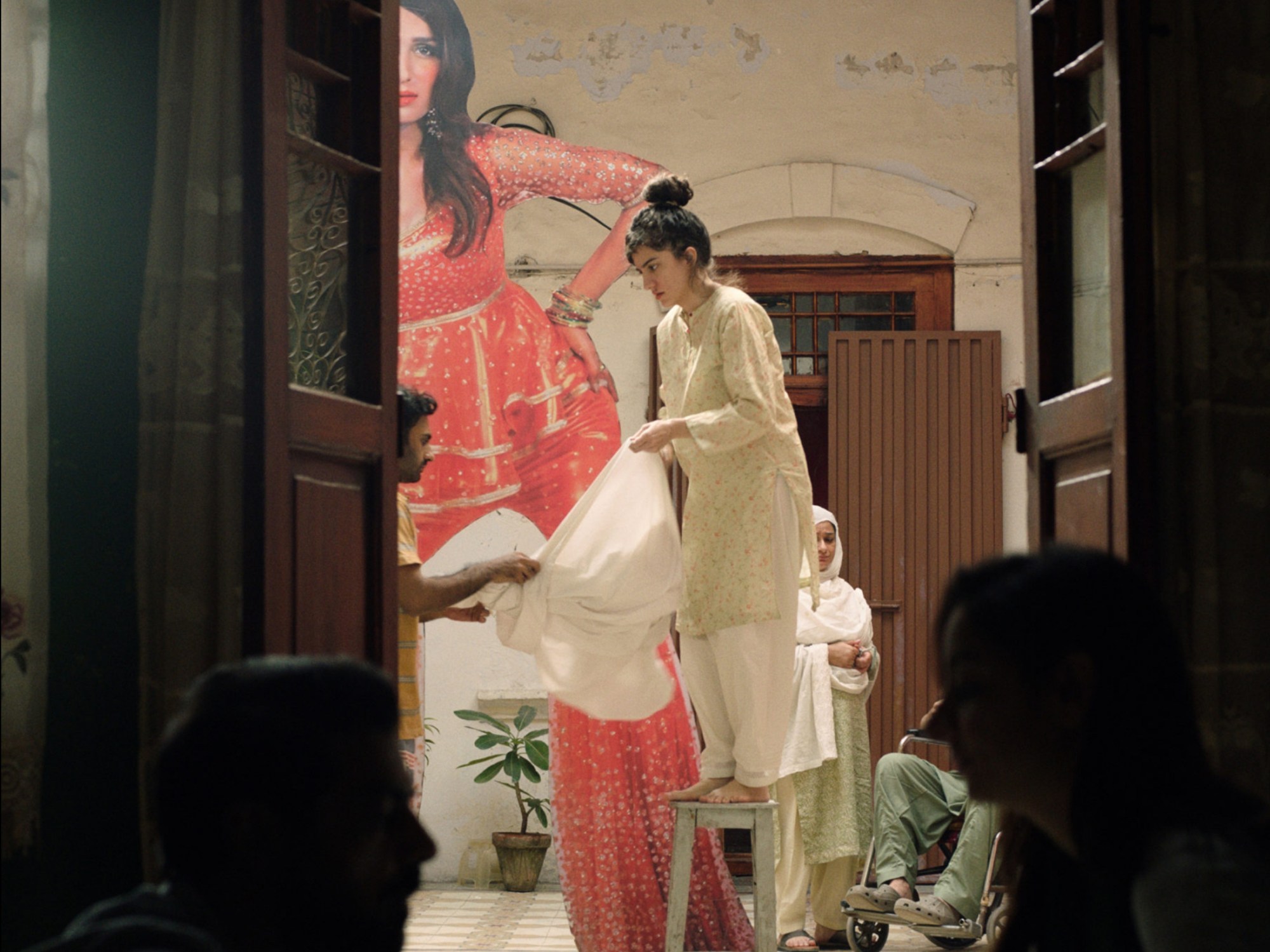
- Golden Globe Awards
Joyland (Pakistan)
A Pakistani drama, Joyland is about a family dominated by a conservative patriarch and the repercussions when one of the married sons secretly finds work in an erotic dance theater and falls in love with a transgender dancer.
In his feature directing debut, Saim Sadiq manages several feats. The Urdu and Punjabi-language tale, starring Ali Junejo as Haider, who is married to Mumtaz (Rasti Farooq) through an arranged marriage but becomes smitten with trans dancer Biba (Alina Khan), is the first Pakistani film to bow in the Cannes Film Festival last May. The movie won the Un Certain Regard jury prize and the Queer Palm prize.
Pakistan selected the Urdu and Punjabi-language drama as its entry to the Academy Awards’ best international feature film race. Despite these honors, Joyland was initially banned in Pakistan. Last November 11, the country’s national film board succumbed to pressure from conservative factions and rescinded Joyland’s theatrical release license, citing that the movie was “damaging to the nation’s moral fabric.”
After an outcry from Sadiq and the film’s supporters, Joyland was allowed to open but only after the censors cut several “objectionable erotic” scenes. But the censors board of Punjab, Joyland’s setting and where the majority of Pakistan’s movie houses are located, banned the film in the region.
In an interview with Time about Joyland, the Lahore, Pakistan-born Sadiq said, “I knew that some people would brand it as having an LGBTQ agenda to make sure that the film doesn’t come out. Using religion is the easiest way to tell somebody to not use their brain. The film doesn’t talk about religion because I don’t think patriarchy is something that stems from religion so much as it does from culture.”
Sadiq, whose exploration of the world of trans dancing began with Darling, his Columbia University film school thesis which won best short film in the Orizzonti section of the 76th Venice Film Festival, said in another interview, with The Hollywood Reporter: “The film was released in its home country, but it still hasn’t been released in its home province, Punjab, where most of its potential audience is. I haven’t really had time to process it all yet.
“If I want to continue to make movies in Pakistan, I’ll have to keep the activist side of me ready, too — and I never really expected or wanted that. I feel very strongly about certain things but I never really wanted to talk publicly about them in any way other than through my movies.
“I just want to be a quiet person in life. But I’ve learned that there’s no room to be a quiet person. If you want to stay quiet, others will speak up more forcefully and you will not get the very essential thing that you need. If you stay quiet, you will be abused, you will receive threats and you will lose. You have to ask yourself, ‘Is my art worth it?’”